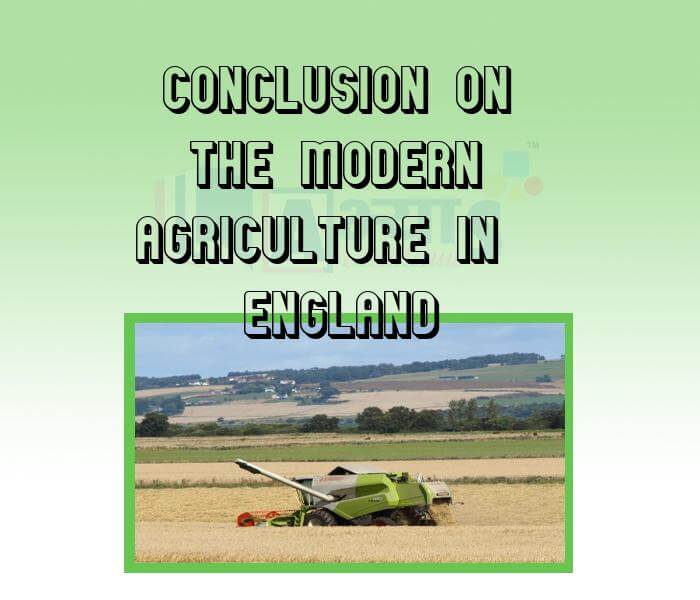Conclusion on the Modern Agriculture in England













Conclusion on the Modern Agriculture in England
Conclusion on the Modern Agriculture in England: The coming of modern agriculture in England thus meant many different changes. The open fields disappeared, and the customary rights of peasants were undermined. The richer farmers expanded grain production , sold this grain in the world market, made profits and become powerful. the poor left their villages in a large numbers. Some went from the midlands to the southern countries where jobs were available, others to the cities. The income off labourers become unstable , their jobs insecure, their livelihood dependent on others.
Bread Basket of the World; Modern agriculture developed in USA and it became the bread basket of the world. At the time, when common fields were being enclosed in England at the end of the 18th century, settled agriculture had not developed on any extensive scale in the USA. At that time, forests covered over 800 million acres and grasslands (prairies) 600 million acres. Most of the landscape was not under the control of white Americans. tribes and transformed whole landscape into agricultural fields.
Students / Parents Reviews [10]
About Abhyas metholodology the teachers are very nice and hardworking toward students.The Centre Head Mrs Anu Sethi is also a brilliant teacher.Abhyas has taught me how to overcome problems and has always taken my doubts and suppoeted me.

Shreya Shrivastava
8thI have spent a wonderful time in Abhyas academy. It has made my reasoning more apt, English more stronger and Maths an interesting subject for me. It has given me a habbit of self studying

Yatharthi Sharma
10thA marvelous experience with Abhyas. I am glad to share that my ward has achieved more than enough at the Ambala ABHYAS centre. Years have passed on and more and more he has gained. May the centre flourish and develop day by day by the grace of God.

Archit Segal
7thMy experience with Abhyas is very good. I have learnt many things here like vedic maths and reasoning also. Teachers here first take our doubts and then there are assignments to verify our weak points.

Shivam Rana
7thMy experience with Abhyas academy is very good. I did not think that my every subject coming here will be so strong. The main thing is that the online tests had made me learn here more things.

Hiya Gupta
8thBeing a parent, I saw my daughter improvement in her studies by seeing a good result in all day to day compititive exam TMO, NSO, IEO etc and as well as studies. I have got a fruitful result from my daughter.

Prisha Gupta
8thOne of the best institutes to develope a child interest in studies.Provides SST and English knowledge also unlike other institutes. Teachers are co operative and friendly online tests andPPT develope practical knowledge also.

Aman Kumar Shrivastava
10thIt was good as the experience because as we had come here we had been improved in a such envirnment created here.Extra is taught which is beneficial for future.

Eshan Arora
8thAbhyas is a complete education Institute. Here extreme care is taken by teacher with the help of regular exam. Extra classes also conducted by the institute, if the student is weak.

Om Umang
10thMy experience was very good with Abhyas academy. I am studying here from 6th class and I am satisfied by its results in my life. I improved a lot here ahead of school syllabus.
